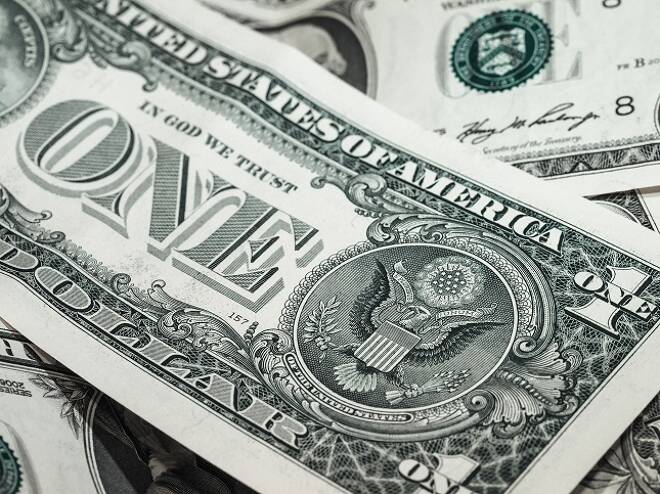Advertisement
Advertisement
U.S Dollar Uproar On Raging Inflation
By:
Bond yields rose after the Fed's preferred inflation measure, the index of core personal consumption expenditures, rose at a 4.4% annual rate in September
After Treasury bond yields rose on news that the Federal Reserve’s preferred inflation measure showed prices continuing to rise faster than its 2% target, the safe-haven currency rebounded from prior-day losses on Friday.
Bond yields rose after the Fed’s preferred inflation measure, the index of core personal consumption expenditures, rose at a 4.4% annual rate in September, continuing a run of inflation at levels not seen for more than three decades.
Traders are preparing for a rate increase from the Federal Reserve around mid-2022, which is causing unusual volatility in U.S. interest rate markets.
Against the greenback, the euro, which has a heavy weighting in the index, plunged 1.05%, its biggest fall since June.
As a result of the euro’s decline, the dollar index rose 0.84% to 94.108 on Friday.
The Fed is expected to announce a tapering of bond purchases at its policy meeting next week, from the current $120 billion a month. The program is expected to be completed by mid-2022.
DXY is a measure of the value of USD against a basket of currencies used by US trade partners and is used by traders to compare the value of the greenback. In the case of a strengthening Dollar against these currencies, the index will rise, while a weakened Dollar against these currencies will cause it to fall.
It came as traders sorted through inflation reports and central bank statements in order to gauge interest rates on different currencies. Despite the big gain the day before, the euro fell more than reversed its gains.
EUR/GBP and EUR/CHF also fell by 0.4% and 0.7%, respectively.
Throughout the week, interest rates and foreign exchange markets have been volatile due to central bank actions and economic data. The upcoming week will likely bring more of the same when it comes to policy meetings of the U.S. Federal Reserve, Bank of England, and Reserve Bank of Australia.
About the Author
Olumide Adesinaauthor
Olumide Adesina is a France-born Nigerian. He is a Certified Investment Trader, with more than 15 years of working expertise in Investment trading. He is a Member of the Chartered Financial Analyst Society.
Advertisement
